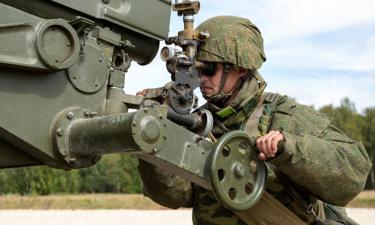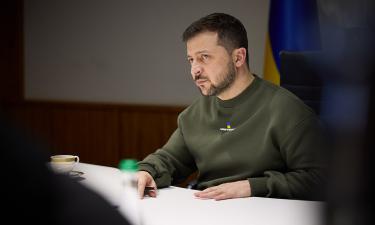IMF assesses Russian government's work
The Russian government sets right priorities in its work, the International Monetary Fund believes.
"The government focuses efforts in the right direction to improve the investment climate," Poul Thomsen, head of the IMF Resident Representative Office in Russia, said at a press conference on Tuesday.
He believes that the government's efforts are right in terms of "the administrative reform, as well as the healthcare, communal housing and education reforms that accompany the administrative reform".
At the same time, implementation of these reforms has a number of obstacles, Mr. Thomsen pointed out. Thus, "they should not be expected within the next three months," he said.
On the whole, the Russian government has set right tasks and has the necessary knowledge and experience to fulfill them, the IMF representative believes.
In his opinion, the important thing is that "the current favorable conditions should not reduce the government's aspiration to fulfill these tasks and slow down the pace of their fulfillment".
At the same time Mr. Thomsen pointed out that "some reforms have been long-standing, but their implementation has been stalled".
This is true, for example, about the natural monopolies reform, he said. "It is vitally important to work out a strategy for Gazprom's reform. It is an issue that has been postponed for a long time," he added.
The Russian government's targets of a 10% inflation in 2004 and 8% in 2005 are feasible, but to a large extent depend on the economic policy of the authorities, Mr. Thomsen said.
"But these targets should be met by toughening the monetary and fiscal policy, not by postponing the decision on increasing the regulated prices," he argued.
'We do not know whether the regulated prices should be raised, for we do not have a sufficient expert base to make an assessment, but the decision should not be linked to its influence on the inflation rate," Mr. Thomsen underlined.
According to him, reducing the total inflation rate to 3% in the near future is also quite feasible.
"If to achieve this the Bank of Russia has to give up interventions and to allow strengthening of the real ruble rate, this policy will be relevant," he emphasized.
Russia's monetary policy should focus on gradual reduction of the inflation rate and strengthening of the real ruble rate, the IMF representative believes.
"Russia should be more decisive when taking steps to reduce inflation, as a high inflation rate leads to high costs in the economy," he said.
At the same time, the basic inflation rate in Russia has been about 10-11% annually in the last two years, and "so far there are no signs of decline", he pointed out.
According to Poul Thomsen, the key tasks Russia faces today are strengthening of the banking sector and implementation of banking control standards.
The Russian banking system has strengthened significantly since 1998, yet at the same time, "the current extremely favorable situation may conceal potential risks and structural weakness," he said.
In this context he pointed out that the Bank of Russia, when selecting banks to take part in the deposit insurance system, had "a unique opportunity to assess the state of banks and the banking sector in a calm, not critical situation and make sure that only reliable banks have access to the deposit insurance system".
Similarly, it is necessary to make sure that the law on counteracting money laundering is complied with, Poul Thomsen said. "Shutting down of some banks indicates that the Central Bank is doing its job," he said.
Lack of transparency in the ownership and governance structure of commercial banks remains a problem for Russia, he pointed out. This raises concerns on the market because of shutting down of some banks.
"The task of doubling the country's GDP set by President Putin is definitely ambitious, but feasible," theIMF representative believes.
At the same time he stressed the need to base the GDP growth on a sensible macroeconomic policy, first of all, on speeding of structural reforms.
It is important to create favorable conditions for investment, first of all in spheres other than raw materials, in order to reduce Russia's dependence on global oil prices, Mr. Thomsen said.
"All our interlocutors in the [Russian] government are positive that the only way to double GDP is to speed up structural reforms," he pointed out.
"I do not think there should be fears that the task of doubling GDP can provoke an unreasonable economic policy," he added.
The IMF is against spending the means of the Stabilization fund to cover the deficit of the Russian Pension Fund, Poul Thomsen announced.
Earlier it had been reported that the Russian government offered to use some of the Stabilization fund's means to cover the deficit in the Pension Fund caused by the forthcoming reduction of the single social tax from 35.6% to 26% from 2005. This spending of the Stabilization fund is included in the 2005 draft budget and in the prospective financial plan for 2006-2007.
"We are against it," Mr. Thomsen announced. "It is necessary to continue saving additional revenues from oil prices of over $20 per barrel".
Subscribe to Pravda.Ru Telegram channel, Facebook, RSS!




